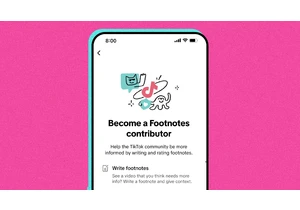If there were a Nobel Prize for Overcoming Bureaucratic Adversity, do you know who would win it? Katalin Karikó. Her story of enduring decades of little to no support for her research into the properties of mRNA, which led to the development of the COVID-19 vaccines, has transcended science. It exposes a blind spot of our current scientific institutions to find and nurture every passionate scientist and line of inquiry. What can we learn from Karikó’s story to make sure we aren’t quietly losing the next brilliant mind and breakthrough idea? This is not a hypothetical problem. It’s an urgent one. Early research into the effects of the pandemic on scientific output is showing that new projects are down significantly over the past year; particularly among early-career researchers. It’s awful timing. The challenges posed by climate change require us to embolden every scientist, not dissuade or overlook them. If we really want to get the planet to net zero emissions, we need to transform how we produce and consume electricity. We need newer, more-efficient transportation, and a food supply that doesn’t rely on deforestation. We need climate-friendly agriculture and better ways to preserve ecosystems. We must capture and remove existing greenhouse gases. We need constant iteration for efficiency. For all the above we need the best minds working on the right problems, and quickly. Unfortunately, if there’s one major shortcoming of our existing scientific institutions, it’s speed. In the earliest days of the pandemic, as researchers raced to understand COVID-19 and test ideas for response, a group of outsider philanthropists stepped up to create Fast Grants for quick-turnaround financial resources for new questions and ideas. The program did more than just fund projects, it showed that there was a more effective, less bureaucratic way to support scientists. There’s a new working paper — Funding Risky Research — where leading science economists outline the challenges of the current funding regime to support high-risk, high-reward research. The authors go deep on Karikó’s story and match it with a literature review of ideas and efforts to fix the problem. The paper concludes with a handful of alternative examples and a plea for more experimentation. Unfortunately, major science funding agencies seem to be hamstrung by a catch-22. Funding risky research first requires bets on risky new models. To help stop the leaks on the scientific talent funnel, our team is launching a new program: the FootPrint Coalition Science Engine. We are in the business of supporting entrepreneurial scientists and we are in agreement that the major impediments are the obvious limitations of decision-making by committee. We’re trying something different. FootPrint Coalition is funding early research in brand new environmental fields, and doing it under the direction of esteemed Science Leads who can move quickly and fund at their discretion. The FootPrint Coalition Science Engine builds off suggestions made in the Funding Risky Research paper. It operationalizes the “loose-play funding for early-stage risky explorations” but doesn’t bind it to universities. We’re doing it “in public” on the Experiment funding platform, a website for crowdfunding science research projects, so anyone can participate as a cofunder. This is an experiment in areas of research that matter. Here are our first five categories and the Science Leads at the helm of each: Indigenous knowledge holds the keys to rebuilding humanity’s relationship with the natural world, and Dr. Keolu Fox is funding Indigenous futures projects to empower the Indigenous researchers and innovators who are asking the right questions and bringing that knowledge into action. The effects of air, water, and soil pollution fall disproportionately on low-wealth Black, Indigenous, and People of Color (BIPOC) populations. Dr. Sacoby Wilson, an associate professor at the University of Maryland, is funding community science and environmental justice projects to bring science and research into the neighborhoods most impacted by pollution and climate change. Emerging biotechnologies are changing how scientists understand, monitor, and sometimes intervene in ecosystems. Dr. Bridget Baumgartner and Ryan Phelan, leaders at Revive & Restore are funding conservation biotech projects that utilize these new tools. Cellular agriculture is the production of agricultural products such as meat, milk, and eggs from cell cultures rather than whole animals. Isha Datar, Executive Director of New Harvest, is funding projects that push the technology, as well as projects that explore the social, economic, and political dimensions of cellular agriculture. Artificial intelligence could help us find the next big breakthrough faster than we could on our own. James Weis, an MIT PhD and entrepreneur, is funding overlooked research with the help of machine learning algorithms to put this hypothesis into action. COVID-19 fast grants showed us a path, and proved that leadership can come from anywhere. The FootPrint Coalition Science Engine is designed for radical participation. You’re invited. Science made rapid progress in response to the pandemic. Let’s build funding models and support systems to help them do the same for the planet; the moment demands it. Robert Downey Jr. is an actor, activist, and cofounder of Footprint Coalition. David Lang is the head of the Experiment Foundation.
Login to add comment
Other posts in this group

A new watchdog report uncovers Facebook groups quietly fueling a black market fo

A software application called Interview Coder promises to help software developers succeed at technical job interviews—by surreptitiously feeding them

Amid tariff whiplash and the rejuggling of global trade, GE Vernova’s CEO Scott Strazik is finding a way to stay “relentlessly optimistic.” Strazik returns to the Rapid Response podcast to share h

Tesla‘s electric-vehicle registrations in California dropped 15.1% during the first quarter, industry data showed, signaling an

TikTok is launching its own version of community notes on the platform, called “Footnotes.”
The crowd-sourced approach to moderation, where users add additional context to p
MrBeast has again defended his philanthropy‑as‑content, clapping back at critics who say he is “only in it for the views.”
On April 13, in a post on X, Jimmy Donaldson—better k

Meta CEO Mark Zuckerberg once considered separating Instagram from its parent company due to worries about antitrust litigation, a
